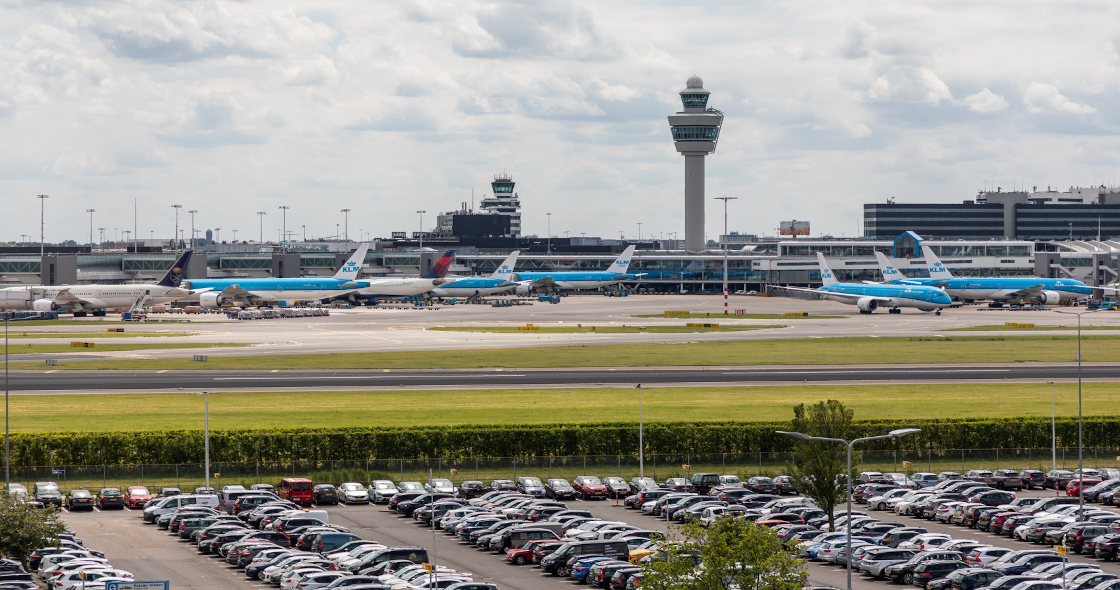
Industry association Airports Council International (ACI) has awarded the highest level for airport sustainability to Amsterdam Airport Schiphol, Eindhoven Airport and Rotterdam The Hague Airport. The three Royal Schiphol Group airports are among the first ten airports worldwide to reach this level. To be eligible for this ACI accreditation, airports must have reduced their own CO2 emissions in 2022 by 90% or more compared to 2010.
ACI added a new higher level to their CO2 benchmark: level 5. This ACI benchmark demonstrates the extent to which airports worldwide are reducing the CO2 emissions from their own, ground-related activities. Airports that are awarded the level 5 certification have not only reduced their emissions by 90% but have net-zero emissions too. Furthermore, the airports actively work together with other organisations to bring the emissions of the whole aviation sector and other indirect emissions, such as traffic to and from the airport, down to zero.
Wilma van Dijk, director of Rotterdam The Hague Airport and member of the Royal Schiphol Group management team, accepted the certificates on behalf of the airports and says:
 Amsterdam Airport Schiphol
Amsterdam Airport Schiphol
“This accreditation is a significant milestone and it’s in line with our ambition to be the most sustainable and high-quality airports in the world. We lowered the CO2 emissions produced by our own activities by 90% compared to 2010. But we’re not stopping there; we continue to work towards emission-free airports in 2030. Schiphol and partners’ electric ground equipment fleet is getting bigger and bigger, we run entirely on Dutch wind power, and the terminal and our buildings are gradually being taken off the gas grid. At the same time, we continue to work on making aviation more sustainable.”
Rotterdam The Hague Airport
RTHA is actively engaged in making aviation more sustainable. This includes gradually phasing out gas, purchasing and generating green energy with more than 37,000 solar panels, electrifying vehicles on the apron and using HVO100, a fossil-free fuel, for vehicles in the airport operation that are not yet electric, such as the fire brigade’s crash tenders. In the air, RTHA is stimulating sustainable flight by speeding up the blending of sustainable aviation fuel and encouraging innovations like electric and hydrogen-powered flight.
Eindhoven Airport
Eindhoven Airport is working hard to reduce emissions. Efforts include using renewable energy, electrifying ground equipment and charging lower airport fees if airlines deploy the newest generation of aircraft that produce fewer emissions. CO2 emissions from air traffic at Eindhoven Airport must be 30% lower in 2030 than in 2019, and the airport is taking various measures to achieve that. Click here for Eindhoven Airport’s press release about achieving level 5 certification.

